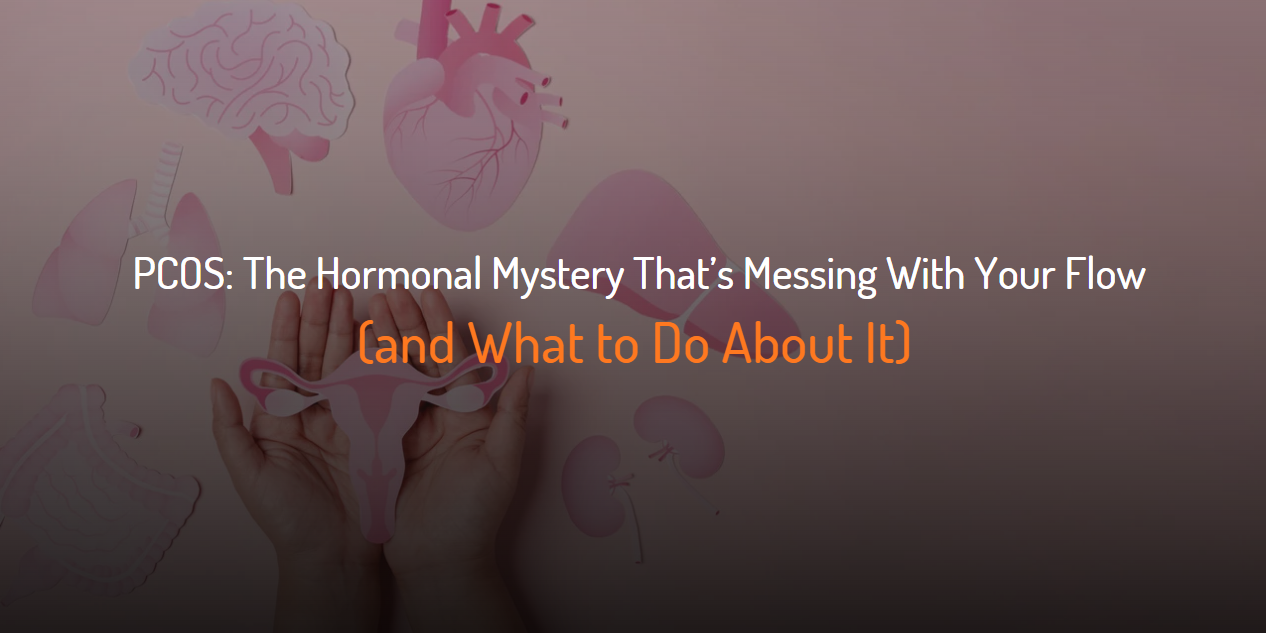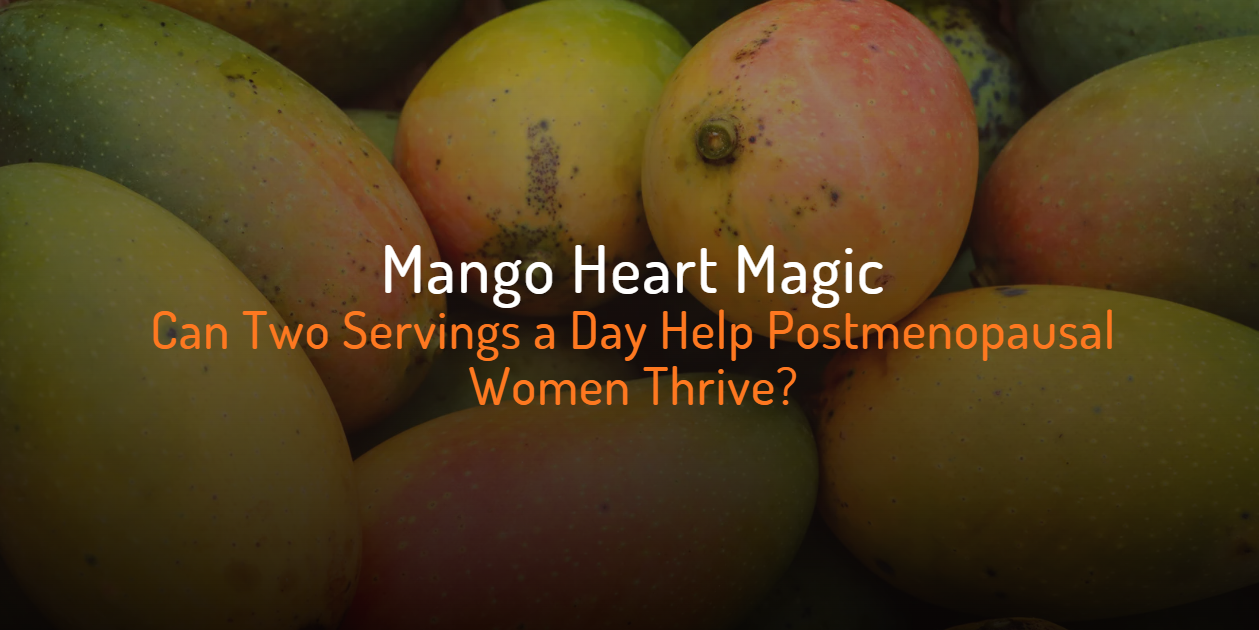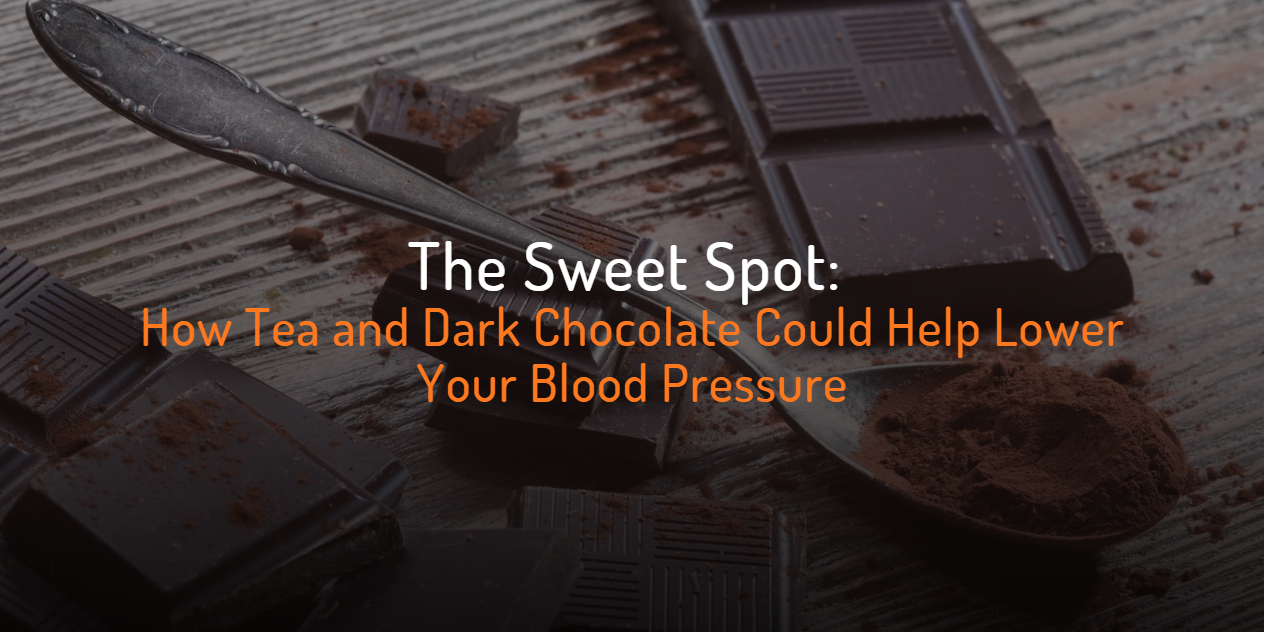

Chanel Willemse
General Manager
16 June, 2025
Let’s Get Real About PCOS
Ever walked out of a doctor’s office more confused than when you walked in? Welcome to the world of PCOS. Polycystic Ovary Syndrome might sound like a niche reproductive issue, but in reality, it’s a full-body hormonal puzzle that millions of women are trying to solve — often with more questions than answers.
PCOS is often described as a hormonal imbalance — but that’s just scratching the surface. It’s also about how your body processes insulin, handles inflammation, and regulates stress. It’s not just about missed periods; it’s about fatigue, mood swings, stubborn belly fat, and a parade of skincare woes.
The kicker? There’s no one-size-fits-all solution. But with the right tools and knowledge, you can manage your symptoms and feel more in tune with your body.
What Is PCOS, Really?
Think of your hormones as an orchestra — when they’re perfectly tuned, your body plays a beautiful symphony of balance. But in the case of PCOS (Polycystic Ovary Syndrome), one instrument (typically testosterone) decides to take the lead in a full-volume solo. This hormonal disharmony creates a ripple effect throughout your body, particularly affecting your ovaries and reproductive system.
A Hormonal Imbalance at Its Core
According to the World Health Organization (WHO), an estimated 116 million women worldwide — around 3.4% of the global female population — are affected by PCOS. While it's most commonly diagnosed during a woman’s reproductive years (typically between ages 15–49), symptoms often begin during puberty and can persist long-term if left unmanaged.
Despite its name, not everyone with PCOS has ovarian cysts, and not all cysts mean you have PCOS. The name is a bit misleading — it's the hormonal imbalances and how they affect the ovaries that define the condition, not just the presence of cysts.
Understanding the Root of the Problem
PCOS is primarily a hormonal and metabolic disorder. The ovaries may produce higher-than-normal levels of androgens (often called “male hormones,” though women produce them too), which can interfere with ovulation and lead to a range of symptoms. Insulin resistance — a condition where your body doesn't respond properly to insulin — is also frequently involved, affecting how your body processes sugar and stores fat.
To officially diagnose PCOS, most doctors follow the Rotterdam Criteria, which requires at least two of the following three features:
- Irregular ovulation or absent periods (also known as oligo- or anovulation).
- Clinical or lab evidence of excess androgens, like acne, hirsutism, or elevated blood testosterone.
- Polycystic ovaries on ultrasound, where the ovaries appear enlarged with multiple immature follicles.
So yes, you can have PCOS even if your ultrasound looks normal — and vice versa.
Common PCOS Symptoms
PCOS looks different for everyone. You might have all the classic signs, just a few, or some that fly under the radar. Here are the symptoms most commonly reported by those with PCOS:
🔄 Irregular Periods (or None at All)
With PCOS, ovulation doesn’t happen consistently, which means your period may be late, irregular, or missing entirely. Some people go months without bleeding, while others bleed for weeks on end. Both are signs your cycle is off track.
⚖️ Weight Gain — Especially Around the Midsection
One of the most frustrating symptoms of PCOS is unexplained weight gain or difficulty losing weight. This is largely due to insulin resistance, which is seen in up to 70% of women with PCOS. It encourages fat storage, particularly around the abdomen — a known risk factor for type 2 diabetes and heart disease.
😖 Persistent Acne (Especially Along the Jawline)
Elevated androgens can stimulate your skin’s oil glands, leading to chronic, deep cystic acne — especially on the jawline, chin, and neck. Unlike teenage breakouts, this acne can be more stubborn and linked directly to hormonal fluctuations.
🧔 Excess Facial or Body Hair (Hirsutism)
Up to 70–80% of women with PCOS experience hirsutism, which is excess hair growth in areas more typical of male hair patterns — think upper lip, chin, chest, and back. This can be one of the most emotionally distressing symptoms, yet it's also one of the clearest signs of elevated androgens.
🧓 Hair Thinning on the Scalp
On the flip side, many women with PCOS also notice thinning hair or pattern hair loss, especially around the crown and temples. This is known as androgenic alopecia and results from the same hormonal imbalances driving unwanted hair growth elsewhere.
Getting Diagnosed: Why You Shouldn’t Self-Diagnose with Dr. Google
If these symptoms sound familiar, the best next step is to visit your GP or gynaecologist. They’ll likely recommend:
- Hormone blood tests to measure levels of testosterone, LH (luteinizing hormone), FSH (follicle-stimulating hormone), insulin, and others.
- Pelvic ultrasound to examine your ovaries.
- A review of your menstrual history and symptom patterns.
It’s important to rule out other conditions that can mimic PCOS symptoms, such as thyroid disorders, adrenal hyperplasia, or hyperprolactinemia.
Why Does PCOS Happen?
PCOS can feel like a medical mystery — and to be fair, scientists are still putting the pieces together. While the exact cause remains unclear, research points to a combination of genetic, hormonal, metabolic, and environmental factors that interact in complex ways.
Think of it like this: PCOS isn’t caused by one problem, but by a cascade of interconnected issues. Let’s break it down.
1. Insulin Resistance: The Hidden Driver
One of the most common threads in PCOS is insulin resistance — a condition where your body’s cells become less responsive to insulin, the hormone responsible for helping glucose (sugar) enter your cells for energy.
To compensate, your pancreas pumps out even more insulin. This excess insulin doesn’t just affect your blood sugar — it also stimulates your ovaries to produce more androgens (like testosterone).
Over time, this hormonal feedback loop contributes to many of PCOS’s hallmark symptoms: irregular periods, weight gain, acne, and hirsutism.
📊 According to studies, up to 70% of women with PCOS have insulin resistance, even if they’re not overweight.
And here’s the kicker: insulin resistance doesn’t just increase the risk of PCOS — it also raises your chances of developing type 2 diabetes, metabolic syndrome, and cardiovascular disease down the line.
2. Hormonal Imbalance: When Androgens Go Rogue
Hormones are your body’s messengers, and in PCOS, they’ve seriously mixed up the group chat.
Women with PCOS tend to have higher-than-normal levels of androgens — including testosterone and androstenedione. These hormones:
- Disrupt the delicate balance needed for ovulation (the release of an egg from your ovaries).
- Interfere with your menstrual cycle, leading to infrequent or absent periods.
- Cause excess sebum production, leading to acne.
- Stimulate hair growth in male-pattern areas (and thin it on your scalp).
Another hormone involved is LH (luteinizing hormone), which may be elevated in PCOS. This contributes to the production of more androgens and further disrupts ovulation.
And then there’s AMH (anti-Müllerian hormone) — women with PCOS often have elevated levels of this hormone, which correlates with a high number of immature follicles and may impair follicle maturation.
3. Chronic Inflammation: A Slow Burn
PCOS is increasingly being recognized as a low-grade inflammatory condition. Inflammation isn’t always visible — it’s not the red, swollen kind you get from a cut. Instead, it’s silent and systemic, affecting how your body processes insulin and produces hormones.
Markers of inflammation, such as C-reactive protein (CRP) and interleukin-6 (IL-6), are often elevated in women with PCOS, suggesting that chronic inflammation may contribute to insulin resistance and worsen symptoms.
Chronic inflammation also puts you at greater risk for heart disease and metabolic disorders, two conditions women with PCOS are already more prone to.
4. Genetics: Thanks, Mum (and Possibly Dad)
PCOS tends to run in families, hinting at a genetic component. If your mother, sister, or aunt has PCOS, your chances of developing it are higher.
Researchers have identified several gene variants that may play a role, particularly those related to hormone regulation, insulin metabolism, and inflammation. However, PCOS isn’t linked to one single “PCOS gene” — it’s likely influenced by multiple genes working together.
5. Environmental and Lifestyle Triggers
While your genes may load the gun, lifestyle can pull the trigger. Diet, physical activity, stress, sleep, and exposure to endocrine-disrupting chemicals (like BPA found in plastics) can all influence how PCOS manifests and progresses.
This helps explain why two people with similar genetics may have completely different experiences with PCOS — one may have severe symptoms, while the other might not even know she has it.
What Can You Do About It?
Here’s the good news: while PCOS can’t be “cured,” it can absolutely be managed — often very effectively. With the right lifestyle changes and a personalized approach, many people with PCOS find relief from their symptoms and regain a sense of control over their health.
Let’s break down the strategies that are supported by science and make a real difference in managing PCOS.
1. Balance Your Plate: Food as Hormone Fuel
The right diet can significantly improve insulin sensitivity, reduce inflammation, and support hormone balance — all crucial for PCOS.
What to Focus On:
✅ Low-GI Carbohydrates: These carbs are digested slowly, preventing sharp spikes in blood sugar and insulin. Think oats, quinoa, sweet potatoes, lentils, and whole grains.
✅ Fibre-Rich Foods: Fibre helps slow digestion, regulate blood sugar, and promote gut health — a key player in hormone balance. Go for leafy greens, broccoli, chia seeds, and berries.
✅ Healthy Fats: Avocados, nuts, seeds, and olive oil support hormone production and reduce inflammation. Omega-3-rich foods like salmon and flaxseeds are especially beneficial.
✅ Lean Protein: Protein helps stabilise blood sugar and keeps you full longer. Include eggs, chicken, tofu, legumes, or Greek yogurt in your meals.
What to Limit:
🚫 Refined Carbs and Sugary Foods: These spike insulin, worsen inflammation, and contribute to weight gain.
🚫 Processed Foods and Trans Fats: These increase oxidative stress and disrupt hormone signaling.
🚫 Excess Dairy or Red Meat: Some studies suggest these can exacerbate inflammation or insulin issues in sensitive individuals.
2. Move in a Way You Love
Exercise is a PCOS superpower. It boosts insulin sensitivity, helps regulate weight, reduces inflammation, and even improves ovulation frequency.
Best Types of Exercise:
🏃 Cardio: Brisk walking, cycling, or swimming improves heart health and helps burn glucose efficiently.
💪 Strength Training: Building muscle improves insulin sensitivity, balances cortisol, and enhances metabolic rate.
🧘 Mind-Body Movement: Yoga, tai chi, and pilates reduce stress and support hormone regulation.
💡 Pro Tip: Aim for at least 150 minutes of moderate exercise per week, mixing in strength training 2–3 times. The best workout is the one you actually enjoy — consistency is key.
📚 Evidence: A 2011 study study found that exercise alone, even without weight loss, improved insulin resistance and ovulation in women with PCOS.
3. Support Your Hormones with Key Nutrients
Supplements can’t replace a healthy lifestyle, but they can provide targeted support for the underlying imbalances in PCOS.
Top Nutrients for PCOS:
🧘 Magnesium: Helps lower cortisol, regulate blood sugar, and reduce inflammation. Deficiency is common in people with insulin resistance.
🐟 Omega-3 Fatty Acids: Reduce inflammation and testosterone levels, improve lipid profiles, and may improve menstrual regularity.
☀️ Vitamin D: Plays a major role in insulin regulation and ovarian function. Up to 85% of women with PCOS are vitamin D deficient (Wehr et al., 2011).
🔬 Inositol: A naturally occurring sugar alcohol shown to improve insulin sensitivity and restore ovulation. Myo-inositol and D-chiro-inositol in a 40:1 ratio is considered most effective.
🧬 Zinc and B Vitamins: Support immune function, hormone metabolism, and skin health.
💊 CoQ10: Helps with energy production and may improve egg quality and metabolic parameters in women with PCOS.
While no supplement can replace lifestyle changes, a well-rounded, daily combination of these nutrients can help support your body’s effort to rebalance.
👉 Ready to find out what your body really needs? Take our Personalised Vitamin Quiz
4. Manage Stress Like a Pro
Stress management isn’t just for peace of mind — it’s critical for hormone health. Chronic stress raises cortisol, which interferes with insulin sensitivity and promotes inflammation.
How to Keep Stress in Check:
🧘♀️ Mindfulness & Meditation: Even 10 minutes a day can lower cortisol levels and improve resilience.
📔 Journaling: Helps process emotions, reduce anxiety, and improve mental clarity.
🌳 Nature Time: Walking outdoors reduces stress hormones and boosts mood-regulating neurotransmitters.
💤 Prioritise Sleep: Aim for 7–9 hours of quality sleep. Disrupted sleep cycles can worsen insulin resistance and hormone imbalances.
Final Thoughts: You Deserve to Feel Like Yourself Again
PCOS can be frustrating, confusing, and — let’s be honest — exhausting. It affects far more than your cycle; it can influence how you feel in your body, how you think about food, how your skin behaves, and even how you show up in your daily life.
But here’s the hopeful part: you’re not stuck with the symptoms. With the right combination of knowledge, lifestyle shifts, and consistent self-care, PCOS becomes something you manage — not something that manages you.

